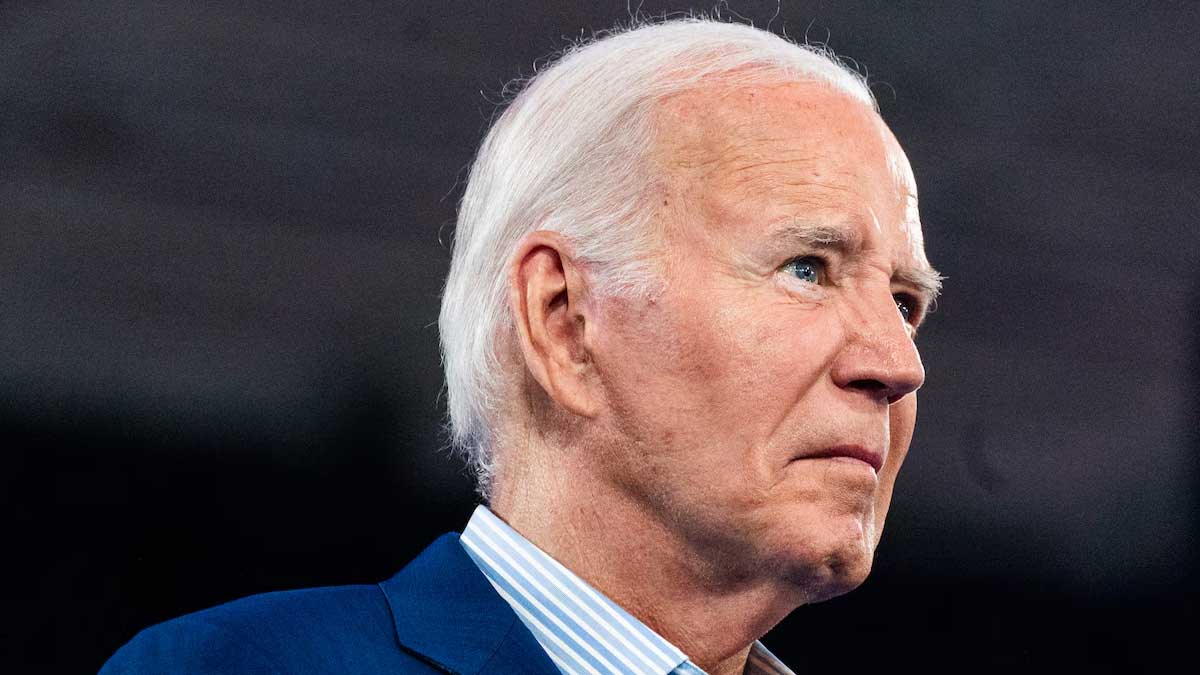- Home
- Billionaires
- Investing Newsletters
- 193CC 1000
- Article Layout 2
- Article Layout 3
- Article Layout 4
- Article Layout 5
- Article Layout 6
- Article Layout 7
- Article Layout 8
- Article Layout 9
- Article Layout 10
- Article Layout 11
- Article Layout 12
- Article Layout 13
- Article Layout 14
- Article Sidebar
- Post Format
- pages
- Archive Layouts
- Post Gallery
- Post Video Background
- Post Review
- Sponsored Post
- Leadership
- Business
- Money
- Small Business
- Innovation
- Shop
Recent Posts
Governors Criticize Biden Over Debate and Communication

President Joe Biden is scheduled to meet with Democratic governors on Wednesday, amid mounting frustration over his recent debate performance and a critical New York Times report highlighting concerns about his mental acuity. The meeting, sought by the governors following a conference call on Monday, aims to address growing apprehension about Biden’s ability to effectively campaign against former President Donald Trump. Governors such as Illinois’ J.B. Pritzker and Kentucky’s Andy Beshear, who have been mentioned as potential alternatives should Biden choose to step down, have voiced their dissatisfaction with how Biden has handled the aftermath of the debate.
Pritzker expressed his concerns on CNN, stating, “President Biden needs to communicate more.” He noted that there has been limited direct contact from Biden since the debate, emphasizing that after a poor debate performance, it is crucial for the candidate to reaffirm his position and demonstrate why he remains the best choice for the presidency. Beshear also weighed in, explaining that the governors requested the meeting to ensure Biden’s well-being and to encourage him to more openly discuss his health and debate performance with the American people.
The meeting comes at a time when internal Democratic concerns are growing. Reports indicate that many Democrats are privately alarmed by Biden’s physical and mental condition, particularly after his performance in last Thursday’s debate. There are fears that the White House and Biden’s campaign have been overly cautious in allowing public scrutiny, aiming to protect Biden from age-related criticisms. Although only one Democratic lawmaker has officially called for Biden to withdraw from the race, a group of 25 House Democrats is reportedly preparing a formal request for him to step aside.
The New York Times report, published Tuesday, has amplified these concerns. The article detailed accounts from multiple sources who observed Biden appearing disoriented or exhausted during various events, including the debate. The Times reported that some sources described a noticeable decline in Biden’s condition compared to previous months, with specific instances of him appearing confused or detached in public settings. This has fueled speculation about whether his debate performance reflects a broader trend in his mental and physical health.
In response to these concerns, key Democratic figures, including Minnesota Governor Tim Walz, who chairs the Democratic Governors Association, California Governor Gavin Newsom, and Pritzker, are expected to attend the White House meeting in person. Other governors will join virtually. Despite their concerns, both Beshear and Pritzker refrained from calling for Biden’s withdrawal from the race. Beshear emphasized that Biden remains the Democratic nominee and that any decision regarding his future candidacy should be made by Biden and his family.
The urgency of the meeting is underscored by growing public frustration within the party and calls for Biden to more effectively reassure voters, donors, and party members of his readiness to serve. House Speaker Nancy Pelosi has weighed in, suggesting that it is “legitimate” to question whether Biden’s mental lapses during the debate represent a more serious issue and has urged him to participate in multiple unscripted interviews. In response, Biden has agreed to an extensive interview with ABC News, set to air on Friday. This will be his first major public appearance since the debate.
The New York Times’ coverage of Biden’s debate performance has further fueled concerns, detailing observations from advisers and former administration officials who noted a significant decline in his cognitive and physical abilities. The report included accounts of Biden appearing “dazed and confused” at public events and raised questions about his ability to engage in high-stakes international diplomacy. Some European leaders reportedly expressed shock at his condition during a recent G7 summit.
In reaction to the New York Times report, the White House has defended Biden, with Domestic Policy Adviser Neera Tanden and Homeland Security Adviser Elizabeth Sherwood-Randall describing him as attentive and sharp during briefings. They highlighted Biden’s ability to absorb and engage with complex information, contrasting this with his debate performance, which they argue does not fully reflect his day-to-day capabilities.
The heightened scrutiny and the upcoming meeting with Democratic governors reflect the increasing pressure on Biden to address concerns about his readiness to face former President Trump in the upcoming election, ensuring he can regain the confidence of his party and the electorate.
Recent Posts
Categories
- 193cc Digital Assets2
- 5G1
- Aerospace & Defense46
- AI37
- Arts3
- Banking & Insurance11
- Big Data3
- Billionaires494
- Boats & Planes1
- Business328
- Careers13
- Cars & Bikes76
- CEO Network1
- CFO Network17
- CHRO Network1
- CIO Network1
- Cloud10
- CMO Network18
- Commercial Real Estate7
- Consultant1
- Consumer Tech180
- CxO1
- Cybersecurity68
- Dining1
- Diversity, Equity & Inclusion4
- Education7
- Energy8
- Enterprise Tech29
- Events11
- Fintech1
- Food & Drink2
- Franchises1
- Freelance1
- Future Of Work2
- Games141
- GIG1
- Healthcare78
- Hollywood & Entertainment186
- Houses1
- Innovation42
- Investing2
- Investing Newsletters4
- Leadership65
- Lifestyle11
- Manufacturing1
- Markets20
- Media193
- Mobile phone1
- Money13
- Personal Finance2
- Policy567
- Real Estate1
- Research6
- Retail1
- Retirement1
- Small Business1
- SportsMoney33
- Style & Beauty1
- Success Income1
- Taxes2
- Travel10
- Uncategorized8
- Vices1
- Watches & Jewelry2
- world's billionaires463
Related Articles
Trump Moves $4B Stake in Truth Social Parent, Stock Drops 6%
Donald Trump recently transferred his 57% stake in Trump Media & Technology...
By 193cc Agency CouncilDecember 20, 2024House Rejects Trump-Backed Funding Bill, Shutdown Looms
The U.S. House of Representatives rejected a new government funding bill on...
By 193cc Agency CouncilDecember 20, 2024Trump Named Time’s Person of the Year for Second Time
On Thursday, Time magazine honored Donald Trump as its “Person of the...
By 193cc Agency CouncilDecember 12, 2024Meta Donates $1 Million to Trump’s Inaugural Fund
Meta, the parent company of Facebook and Instagram, has confirmed a $1...
By 193cc Agency CouncilDecember 12, 2024















Leave a comment